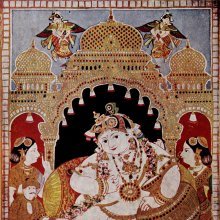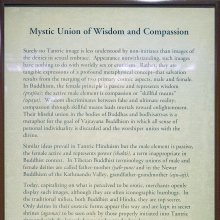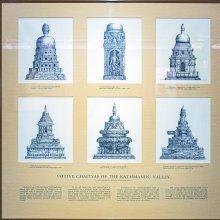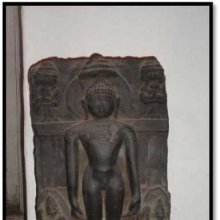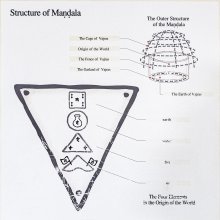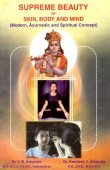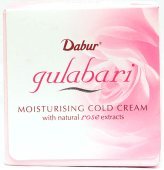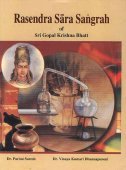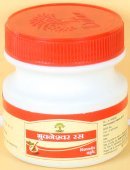Element: 1 definition
Introduction:
Element means something in Hinduism, Sanskrit. If you want to know the exact meaning, history, etymology or English translation of this term then check out the descriptions on this page. Add your comment or reference to a book if you want to contribute to this summary article.
Images (photo gallery)
(+19 more images available)
In Hinduism
Yoga (school of philosophy)
Source: ORA: Amanaska (king of all yogas): A Critical Edition and Annotated Translation by Jason BirchThe (Five) Elements are denoted by the Sanskrit term Bhūta, according to the Amanaska Yoga treatise dealing with meditation, absorption, yogic powers and liberation.—Accordingly, as Īśvara says to Vāmadeva: “[...] [Now], I will teach the practice of that, which produces absorption. [...] Having abandoned the thought that the universe exists of five elements (pañca-bhūta); that the body consists of five elements (pañca-bhūta); and that everything consists of the elements (bhūta), cultivate the thought, ‘[everything consisting of the elements] does not exist’. [...]”.

Yoga is originally considered a branch of Hindu philosophy (astika), but both ancient and modern Yoga combine the physical, mental and spiritual. Yoga teaches various physical techniques also known as āsanas (postures), used for various purposes (eg., meditation, contemplation, relaxation).
See also (Relevant definitions)
Starts with: Earth Element, Elemental power, Elemental Purity, Ether element, Fire Element, Mind Element, Water Element, Wind Element.
Ends with: Cosmic element, Earth Element, Ether element, Fire Element, Heat Element, Mind Consciousness Element, Mind Element, Water Element, Wind Element.
Full-text (+4132): Dhatu, Mahabhuta, Akasha, Pancabhuta, Tanmatra, Bija, Pancabhautika, Akasadhatu, Tattva, Vayu, Adhibhautika, Prithvi, Tejo-dhatu, Bhuta, Pathavidhatu, Apodhatu, Apancikrita, Akarshani, Tejas, Prithivi.
Relevant text
Search found 415 books and stories containing Element; (plurals include: Elements). You can also click to the full overview containing English textual excerpts. Below are direct links for the most relevant articles:
Abhidhamma in Daily Life (by Nina Van Gorkom)
Visuddhimagga (the pah of purification) (by Ñāṇamoli Bhikkhu)
B. Description of the Elements (dhātu) < [Chapter XV - The Bases and Elements (āyatana-dhātu-niddesa)]
Additional Ways of Giving Attention < [Chapter XI - Nutriment and the Elements (samādhi-niddesa)]
Defining of the Elements < [Chapter XI - Nutriment and the Elements (samādhi-niddesa)]
Vipassana Meditation Course (by Chanmyay Sayadaw)
Part 3 - The Six Elements Explained < [Chapter 3 - Systematic Practice]
Part 3 - Sitting Meditation < [Vipassana Meditation Guidelines]
The Great Chronicle of Buddhas (by Ven. Mingun Sayadaw)
The first Isidatta Sutta < [Chapter 45a - The Life Stories of Male Lay Disciples]
Part 2 - The Vijaya Sutta and its Translation < [Chapter 34a - The Buddha’s Seventeenth Vassa at Veḷuvana]
Part 4 - Duties of Venerable Sāriputta < [Chapter 31 - The Monk Sudinna, the Son of the Kalanda Merchant]
The Padma Purana (by N.A. Deshpande)
Chapter 2 - The Creation of the Elements, Prakṛti etc. < [Section 3 - Svarga-khaṇḍa (section on the heavens)]
Chapter 64 - Mātali’s Discourse on Old Age < [Section 2 - Bhūmi-khaṇḍa (section on the earth)]
Chapter 7 - Account of the Body < [Section 2 - Bhūmi-khaṇḍa (section on the earth)]
The Buddhist Teaching on Physical Phenomena (by Nina van Gorkom)
Related products
(+24 more products available)
